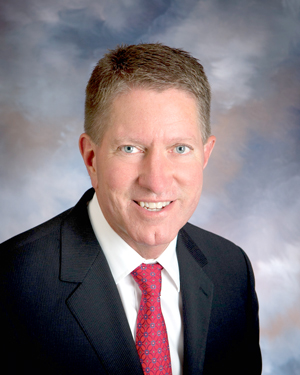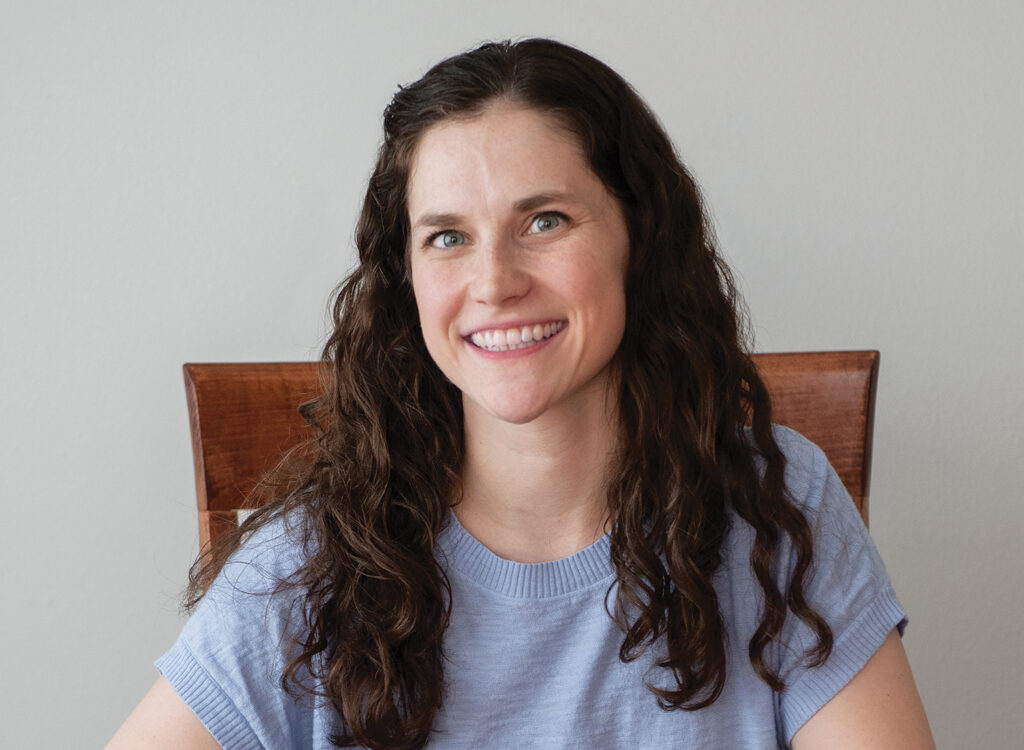Newsmaker Q & A: Bruce Rastetter
The Iowa business leader, Board of Regents prez and political power broker discusses recent decisions

Our job at the Business Record is to keep you informed on news, developments and ideas that will help your business pursuits. Often, that leads us to interview key decision-makers.
Occasionally, the business leader is so informed, so plugged in, so controversial or so intriguing that we know a single interview will be wide-ranging and illuminating in several areas. So periodically, we’ll be bringing our readers those kinds of interviews in a feature called Newsmaker Q&A. Bruce Rastetter certainly fits the bill. I sat down with the giant of agriculture, president of the Iowa Board of Regents, huge Republican donor, FOB (Friend of Gov. Terry Branstad) and innovator for a 90-minute interview in the meeting room at Rastetter’s Summit Agricultural Group LLC headquarters near Alden.
Rastetter already had surprised us in a separate telephone interview with the news that Summit will be looking to raise fish as part of its expanding business, and also will most likely build two ethanol plants in Brazil.
Not surprisingly, when we sat across the table from him, Rastetter continued to make news, even as the furor raged over the regents’ selection of a businessman with no university administrative experience as president of the University of Iowa.
Rastetter revealed that the regents will look at sites other than the AIB College of Business campus for a proposed regents center in Des Moines.
He also:
— Suggested that the regents consider a fully private search the next time they select a president for Iowa State University, the University of Northern Iowa or the University of Iowa to ensure that current university presidents and other qualified candidates feel comfortable applying.
— Vehemently rejected Des Moines Water Works CEO Bill Stowe’s idea that farmers should consider paying for Des Moines Water Works’ nitrate-removal expenses as a possible way to settle the utility’s federal lawsuit, which claims that farms in three upstream counties are a source of the potentially deadly pollution.
— Steadfastly defended both the selection of Bruce Harreld as University of Iowa president and the process that led to it.
Here are Rastetter’s views in his own words.
The presidential search controversy
Rastetter defends choice, suggests regents consider a private search next time
Tell us what the Board of Regents’ general direction was on the hiring of University of Iowa President Bruce Harreld. What concepts were you trying to address?
The University of Iowa is a more than $3 billion enterprise, with 22,000 employees. University (of Iowa) Hospitals (and Clinics) sees 1.2 million people a year. And you have approaching 33,000 students.
And you have close to $500 million a year in research.
Look around the country at a continuing trend to go to nontraditional candidates. It’s not an overwhelming trend, but there are a number of significant success stories out there. Mitch Daniels at Purdue is one. David Boren at Oklahoma. And other smaller private schools that have done that.
They said that Bruce Harreld was a nontraditional candidate. So was (Iowa State University President) Steve Leath. And Steve didn’t grow up in the regular academic world as a provost and build up through there and become a president. He had a more nontraditional pathway. Clearly some of those things that we saw in him that have made Iowa State extremely successful, (including) the research background that becomes more of a private business background as far as managing the research for a large entity as well as for (the U.S. Department of Agriculture).
How do we make sure that the status quo isn’t acceptable in the future? Because higher education is challenged everywhere. We have declining state support and challenges with that. We have student debt at record levels. And we have to maintain accessibility and affordability and improve.
How did that inform your search?
We started with a lot of qualities like that as we started looking around the country. But more importantly, we looked at how the University of Iowa could become one of the top 10 public universities in the country. How can we remain accessible for Iowans, and welcome out-of-state students? How can we create a more dynamic research park using intellectual property that’s created at the university, in particular the biomedical side, and have that research park grow and create high-quality jobs?
Our view as regents has been, when you look at some of the challenges with some of the decline in some of the programs at the university, how do we reverse that? I think what you do is you hire somebody who has experience in his whole life of being an innovator. And being a collaborative person who works with teams.
We had a number of nontraditional candidates in this search. They haven’t gotten talked about because the first part of this was a confidential search. Out of the Chicago interviews came three traditional candidates and one nontraditional.
In my mind, the academic side will prosper with someone who is very good at developing strategic plans. That is what (Harreld) did for IBM, and that’s been his whole history.
Our goal as regents is to have someone with a vision. I’m not comparing him to Steve Leath, because we’ll have to see. But someone who has a vision of where the university can go and works collaboratively to get it there — that’s really what we see in him.
Have some missed the point on Harreld’s credentials?
The frustration that I have had recently in the process is (reporters don’t write that) he taught six years at Harvard. And two years before that, he taught at the Northwestern (University) Kellogg (School of Management). (Kellogg is) arguably the fifth-best business school in the country. Harvard is first. He has a history of collaborating with people at Harvard in terms of entrepreneurship and in team building.
Once we get beyond this early stage, the guy works well with people, and I think the students, faculty and staff will see that.
What other qualities does a candidate like this bring to get you where you want to be?
One of the keys is having a principled leader. He teaches leadership classes at Harvard. Think about that. He is teaching leadership classes on team building at Harvard and mentoring students.
I think one of the challenges with the complexity of the universities is having a principled leader who is definitive. From campus safety, to sexual assaults, to large employment organizations, there is a need for definitive principled leadership in these places, and high expectations of how we get better.
To overcome maybe a limited academic experience, you have to have collaborative teams. You have to make great programs greater and really good programs better. You have to prioritize the dollars. And how do we have additional revenue generation diversity, whether it’s basic research or collaboration with business to offset a variety of things, in particular rising tuition cost and loss of state aid?
Shared governance doesn’t mean shared decision-making by everyone. Sure we had faculty members and we saw the surveys and we got the emails that were very opposed to him. But we also had faculty members who told us if we are going to solve breast cancer through research in my lifetime, we need someone like this.
We are going to work with everyone. We are not going to be negative toward the faculty because of the no-confidence vote.
Did the fact that you hired a president the same day as the regents held interviews give the impression to some people that you had already made your decision?
This is exactly the same process we followed for UNI and Iowa State. We interviewed the finalists and at the end of the day of interviewing finalists, named the president.
The search committee has 21 members, and there were seven faculty members on it, appointed by the Faculty Senate. Staff and students were on it. There was the dean of the business school. Of the nine regents, three were on the committee.
We went from 80 applicants to interviewing nine. The 21-member committee spent two days interviewing them. And then the committee selected the four finalists. . . knowing the regents would have the sole decision to hire, with input from all the stakeholders.
All regents saw the four finalists’ public events. Then we had lengthy interviews with them. (After this interview, Rastetter acknowledged some regents had met with Harreld before the formal process started.)
Do you think the selection process worked well?
Yeah. I mean, obviously with this one we had controversy, that’s clear.
A number of schools around the country are going to private searches. (The) University of Illinois did. (The) University of Oregon. It’s a continuing trend because it’s hard to get good people with great jobs to go through a public search and risk having the public know they applied for another job. It’s something future regents will have to consider — just doing private searches. We have heard that some different presidents of other universities didn’t apply because it was a public search.
The future regents should consider a private search because there is a continuing trend of large public universities doing completely private searches. Arguably the most important job we do is the hiring and firing of presidents. So the choosing of that president is really important, because it is hard to let someone go once you get them.
Let’s talk about another regents topic. Why the decision to raise tuition $100 at Iowa State University and the University of Northern Iowa, but not at the University of Iowa?
It was pretty simple. We had asked the Legislature for funding so we could freeze tuition. We didn’t receive that at the end of June. So we thought it was too close to the fall semester (to make a change). Clearly, Iowa State and Northern Iowa, with the number of in-state students, need that tuition increase to make everything work. And we heard from the student government leaders about that. And we heard from the University of Iowa student government leaders who wanted us to consider not doing that.
It was a 5-4 vote on the board to not raise tuition at Iowa but let it be frozen and let it increase at the other two. I voted to freeze tuition at Iowa. The regents who sided with the student body felt that the University of Iowa has the resources, and they wanted to support the students. UNI has a financial structure problem that we have asked the state to help fix because of a high number of state residents among the students, more than 92 percent. Iowa State, in educating almost 22,000 Iowa resident students, and a smaller number of nonresidents, has a challenging budget issue. The state money that they received does not pay the cost of educating those Iowa resident students. The University of Iowa has fairly healthy balance sheet.
What do you say if someone asks if you are favoring one school or another?
It’s not favoring one over the other. I am an Iowa grad, I have given $5 million to the University of Iowa, and I want to see the place succeed. But the reality is, there is a significant difference in the balance sheets. As regents, we have take into account all three universities, and we want them to be quality universities.
Why the change in your planned “ask” at the Legislature?
Our original budget proposal (for next year) was an increase to the base of $8 million for Iowa State and $7 million for UNI and to keep Iowa whole. I heard from the faculty and staff last week in Iowa City that they frankly didn’t think that was fair. I heard from (President) Bruce Harreld that he would like to see that changed. UNI needed the money to strengthen its balance sheet. Iowa State needed the dollars to educate a large number of Iowa students and to hire more professors because of the growth that university has had. Bruce Harreld and the faculty said they would like have new dollars go to teaching and research. … I right away said I would take it to the regents and we supported it. So what passed was a request for an additional $4.5 million for the University of Iowa. The universities’ work to serve Iowa residents will be reflected in the budget requests going forward.
Where does the debate stand regarding performance-based funding?
We think that is still a board priority, but we are not going to go to the Legislature and ask for that. That obviously became a lightning rod. We don’t think it should have been or should be. Universities and colleges around the country are doing that. But the board will have priorities on graduation rates, on progress-to-degree, degree attainment and also diversity in the traditional sense as well as in the income sense.
What is the future of corporate involvement on the campuses?
That has continued to grow, particularly at our large research universities, because of cuts in state funding and federal funding. I think whether it’s pharmaceutical companies doing research at the University of Iowa on human health or pharmaceutical companies at Iowa State, it’s an important opportunity for both the university, its students, and also as a way to solve big problems and create new intellectual property that can benefit society. So I think the streamlining of the agreements and the ability of the universities to move quickly is going to be an important aspect. It’s going to companies and asking what their needs are. I think we have some really bright people who can help solve some of these problems.
How do you ensure that academic freedom is still there?
First, universities have ways they do that within the agreements. That is not something we get involved with as regents, but clearly there are some basic blueprints out there that people follow to do that.
Government aid in a freefall?
Are we in an unavoidable drop in government aid to the universities?
I don’t think so. What we have to do is to make sure we are articulating why it is important to society and how people are going to benefit. It’s kind of like the evolving extension service at Iowa State over the past 150 years. There is still that ability to do basic research that private companies or others aren’t going to do for the greater good of society. I think talking about specific examples is going to continue to be important. Like some environmental work. How do we slow nutrient runoff? How do we improve the quality of water in this state? There is a real mission for a land-grant university to do that. Clearly, we are going to have more environmental regulations, so we ought to develop practical ways to do that research, and the government ought to fund it.
The Water Works lawsuit
Rastetter blasts lawsuit, firmly opposes asking farmers to pay for utility’s nitrate-removal expenses.
How do you react to the Des Moines Water Works lawsuit (against three northwest Iowa counties over nitrate pollution and whether they are subject to federal Clean Water Act regulation)?
As a businessman, I think it is really unfortunate that Des Moines Water Works chose to sue, rather than working collaboratively with people to solve the problem. There is significant work being done, but there are fundamental issues that need to be addressed. If the lawsuit is successful, it is literally going to affect billions of dollars in economic activity in generational family farms.
If we think about it, technology will make a significant impact in the ability to better manage nutrient runoff. Multiple applications of nutrients instead of just one. The state could invest in tax credits for the farmer who is investing in new equipment to make him better apply and manage those nutrients. An encapsulated nitrogen pellet that has slower release would help. Five years ago that didn’t exist, but it exists today.
We have some fundamental issues like sporadic rainfall in Iowa. (Des Moines Water Works CEO) Bill Stowe and a farmer in the Raccoon River valley can’t control whether we get 13 inches in a week or we get three-tenths of an inch. So that affects leaching and all those things associated with it.
This perspective that you sue someone and then expect those people to come to the table and work with you in a constructive way just doesn’t make sense to me. It certainly doesn’t take much of an increase in water rates to pay for his new water treatment. And he shouldn’t be dumping the nitrate back into the river for the downstream folks to have. It’s important if you expect things to improve that you not denigrate the downstream users of water.
There has been some talk of a settlement. What should be included?
How ‘bout a novel idea: They agree to stop their lawsuit and work collaboratively with people to be solution-makers. I think truly if the Iowa spirit exists on wanting to work with your neighbors, you got everyone’s attention by filing the lawsuit. Why not drop the lawsuit — they can always restart it — and say, why don’t we work together hard for the next couple of years and try to figure out this out? And let’s make real progress. That would be better than just continuing the lawsuit and asking people to work collaboratively because you are holding a hammer over their head.
Has Stowe set the discussion back?
I don’t know about that. But you have people focused on the wrong thing when you sue. They aren’t focused on solving problems; they are focused on winning a lawsuit.
Des Moines Water Works has a consultant determining the cost of a proposed nitrate-removal plant to replace the current one, which is decades old. The initial estimates were $80 million to $180 million. Stowe thinks if the state or farm interests paid for the plant, he might consider a settlement. Your thoughts?
Why should they have to? Why should rural Iowans have to pay for Des Moines Water Works’ new plant? Those people are farming the ground, evolving with the new technology to help lessen the nitrate, in the best possible way they can, because nutrients are expensive. They aren’t putting them on to waste them and to send them down the river. I think it’s a false premise to think these people should pay for the Des Moines Water Works when they are already paying to make improvements. That nitrogen costs them dollars and the phosphorus does, so they are trying to limit the use of those and the cost of those, using the best science and technology that’s available. So the issue is, how do we develop more science and technology and help farmers use those? And how do we get them to use cover crops, which is complicated in Iowa because if we don’t get rain in the fall you can’t get that cover crop going? The Water Works also should not be treating water that is (used for irrigation).
Ultimately, the farmers cannot control Mother Nature. Iowa can get better environmentally. I really believe that. There should be more filter strips. There should be more grassed waterways. And there should be more cover crops. And there should be more technology so you can have multiple applications of nutrients.
But should farmers pay for a growing Des Moines population that extracts more water for a larger water works, that is pulling the water out of the river rather than from deep wells? I would suggest that there ought to be a healthy debate on that.
Innovation
Raster calls for faster transfer of intellectual property: should ISU move to downtown Des Moines?
What trends in innovation do you see at the universities?
We’ve got to find ways to be more entrepreneurial, more innovative and cut the time frame on taking the intellectual property and serving the needs of society and working with private companies because of the lack of government research dollars to drive that. That’s why the Research Triangle in North Carolina came into existence.
The vision of how we create the Cultivation Corridor and convert that intellectual property quicker into actual technology and companies that create high-quality jobs for students who graduate in this state is important. If we are going to do almost $1 billion of research, just what are we creating with that?
Should Iowa State move to downtown Des Moines, as Bruce Katz, co-director of the Brookings Institution’s Metropolitan Policy Program, suggested?
(Laughs) I think that is where Des Moines will benefit from a regents center. That will be a real positive. But great research institutions have dynamic research parks next to them. So the development of that at the University of Iowa and Iowa State is really important long term.
And doing that right next to them so students can have that experience.
Beer at the stadiums
Who decides if we have beer at the stadiums (at all concession stands)?
I believe it’s within the universities. I would guess they would probably bring that to the regents, but that is within their purview, not ours.
Are we heading that way?
That one I will let the athletic departments wade into politically. I think we will wait and see what their recommendation would be.











